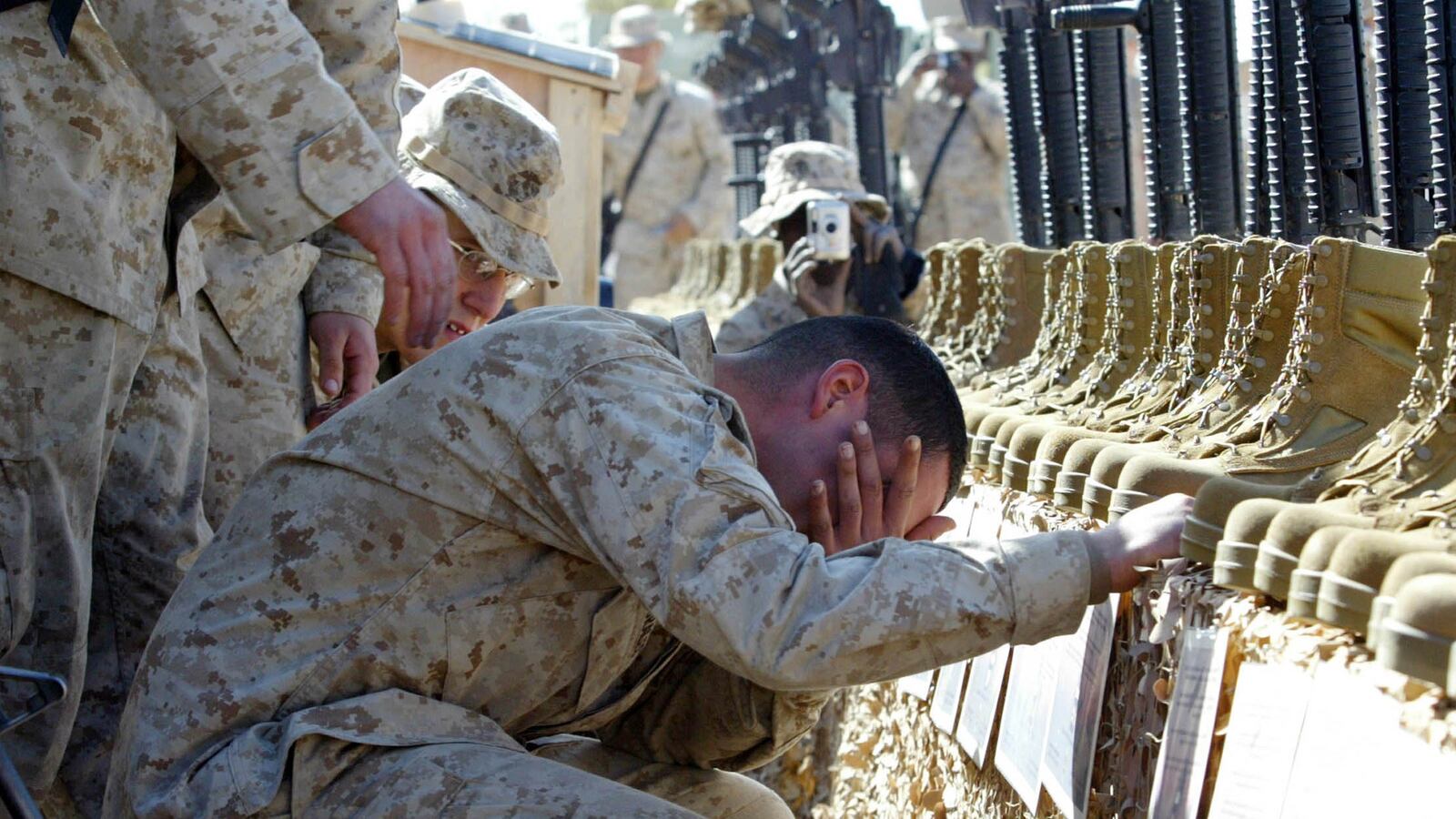On the calendar of American war dead, more ghosts cluster around September 17 than any other day. The brutal campaign near Sharpsburg, Maryland in 1862—best known as the Battle of Antietam—is typically recognized as a political opening for President Lincoln to announce the Emancipation Proclamation several months later.
For the men of my former Army infantry unit, it was a defining moment of regimental history and where our motto, “To the Limit,” would be tested as the 20th New York Regulars charged through cannon and sharpshooter fire. A company commander was shot through the chest. Over 22,000 Americans were killed, wounded or missing in a single day. The Regulars accounted for 145 of them.
In 2011, four years after my tour in Iraq, I walked the Antietam battlefield to remember. Not in September on the battle’s anniversary, or on Memorial Day, but on March 14. It was the fourth anniversary of Corporal Brian Chevalier’s death—the grim demarcation of our tour.
He was killed instantly by a blast in an ambush launched on our vehicles outside of a schoolhouse. Amid machine gun and RPG fire, I caught a glimpse from a rooftop of a body bag patiently unzipped by a medic near the destroyed vehicle. I didn’t yet know who was dead. I learned later it was a good man we called Chevy, father to a young girl in Georgia.
Memorials are a crimson smear across the days—March 14, April 8, May 6, that marked our bloody spring of 2007.
A steel bracelet on my wrists reads CPL BRIAN L. CHEVALIER - 14 MAR 2007 – DIYALA. A sniper killed my former team leader, Jesse Williams, on April 8. That date is etched onto a flask he gave me to store last minute, to be given back in the states once we were home. It bears his motto: “Live Free. Die Well.” He would say it every time we dismounted from a vehicle on a combat mission. I think about his motto, and how he would teach it to his daughter, born just before our deployment, when the calendar shifts to April.
By the time late May arrives, I’ve already been through the emotional ringer.
Every fallen man I know gets his own day. Facebook profile photos transform into their faces. We call each other to tell stories about them. Spring is a time of new beginnings, but in the years that followed, I became inward and sullen as those memories took me under. A soothsayer warned Julius Caesar about the Ides of March—a catastrophe looming in the middle of the month. It came for us a day early in 2007, and waits for us, echoing that loss, in every year that follows.
Yet those days, and March 14 especially, become less of a painful moment to grieve and more of a quiet reminder of what was lost. That morning defined us—my barracks roommate tattooed III-XIV in block letters across his arm—but over time, our military identities gave way to more permanent fixtures.
We became firefighters, medics, and fathers. One old soldier is on the path to a doctorate in mathematics and another is a trained underwater welder. I went back to school and worked in the government. The raw grief of those days has mostly subsided, and they’re now infused with an optimistic longing. Perhaps the dead would be novelists or homeless or researching cures for diseases. Mostly, I imagine them becoming the men they said they were going to be.
This is mostly a good thing. Our changing and busy lives must make space for the living so we can move forward.
For my last spring break of college this year, I flew to Colombia by myself to have a moment alone and explore a new place. I was roasted by the sun in Cartagena and walked the once deadly streets of Medellin in the rain. I try to do something new and scary on every trip to South America, this was my third. In Colombia it was SCUBA diving for the first time. I dove under the Caribbean waves and glided across coral. It makes for a great story, but it also carries a responsibility. Chevy, Jesse, and many others exchanged their lives for ours. It’s our task now to do something with them.
I felt recharged on my trip —a vastly different feeling from years before, when life in early March became muted and gloomy. Yet there was no getting around my return date: March 14. I felt a tinge of guilt to use that day to wait in customs lines as narco cops dug into the backpack I used in Iraq, a hand-me-down from Jesse. It felt disrespectful. But life itself is messy and unceremonious; it cannot stop too long for death without losing itself to the undertow.
Instead of going back to Washington to be alone, I flew to New York to visit Victor, an Army buddy who was riding with Chevy that day. We met up for beers in a Manhattan bar, one poured for Chevy that sat untouched. Victor talked about the FDNY academy and I talked about Colombia, and the conversation turned, as it always does, to Chevy. We laughed about his tattoos looking like jailhouse ink, and how he’d duck his early riser boss because he didn’t want to get breakfast with him.
We didn’t stay as long as I had hoped before we went our separate ways. He was picking up his girlfriend coming into town. I was heading to New Jersey to stay with mine. We made room for Chevy between us, but in the years since he was killed, we have carved out space for our lives as they are now. His beer remained on a table as we headed out.
On the train ride to Jersey, I thought about my visit to Antietam again, and imagined walking with Chevy and Jesse on the battlefield, tracing the Union advance and recounting the shelling of shocked Confederate troops hidden in the cornfields.
We might have compared it to that one ambush outside of a schoolhouse in mid-March, where a massive bomb buried in the road failed to detonate. Our memories wouldn’t help us quite place the day at first. It would’ve been just another firefight and misfired IED among others that week. And after awhile, the conversation might have drifted to their daughters, both very young during that spring in 2007. They’re growing up so fast, one might have said, with a mix of pride and regret.
Then, we would look over a place that on a September day in 1862 became hell on earth, but was now a pristine shrine to the dead. And we would imagine how long it took for the scorched earth to transform into a field where something new had grown.






